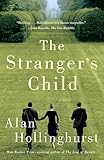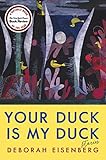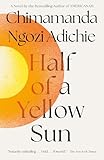This year I grabbed a lot of books almost totally at random and finished most of them, some in a few hours (hello, Jean Rhys’s gorgeously unnerving Wide Sargasso Sea, which I read in a hotel in Tijuana in the spring), some over many months (looking at you, Alan Hollinghurst’s The Stranger’s Child, an exquisitely boring novel I now meditate upon, helpless, for around two hours a day). I didn’t have a plan. For a while I read nothing but Joan Aiken novels. Nominally this was because I was writing about Joan Aiken for The New Yorker, but when you are reading books as delightful as Aiken’s, the whole question of motive begins to seem somewhat beside the point. For instance, you would never say, “I’m leaving this world for a plane of transcendent joy so I can write about it for the New Yorker.” Or maybe you would, but in that case I harbor grim suspicions about the integrity of your Instagram feed.

 I read a lot of Chinese poetry from the Tang era, returning again and again to Du Fu whenever I felt hopeless or desolate. His work is a steady source of strength for me in hard times: compassionate, particular, seemingly able to encompass both the whole of existence and the precarious lives and moments held within it. Of course he also lived through one of the most terrifying periods of social upheaval in human history, and his thousand-year-old poems ring out clearly against the onslaught of our current news cycle. If you can read his accounts of life as a refugee and still feel indifferent to the refugee crisis, you must be molded from very cold clay.
I read a lot of Chinese poetry from the Tang era, returning again and again to Du Fu whenever I felt hopeless or desolate. His work is a steady source of strength for me in hard times: compassionate, particular, seemingly able to encompass both the whole of existence and the precarious lives and moments held within it. Of course he also lived through one of the most terrifying periods of social upheaval in human history, and his thousand-year-old poems ring out clearly against the onslaught of our current news cycle. If you can read his accounts of life as a refugee and still feel indifferent to the refugee crisis, you must be molded from very cold clay.

 I didn’t read many new books this year; who knows why. Among the books published in 2018 that I did pick up, Sam Anderson’s Boom Town, a lyrically thrilling account of the history of Oklahoma City, and Your Duck Is My Duck, Deborah Eisenberg’s new collection of short stories, were particular favorites. I read the Eisenberg collection while traveling on my own book tour. I found myself wanting to read her work, instead of mine, aloud at most of my stops.
I didn’t read many new books this year; who knows why. Among the books published in 2018 that I did pick up, Sam Anderson’s Boom Town, a lyrically thrilling account of the history of Oklahoma City, and Your Duck Is My Duck, Deborah Eisenberg’s new collection of short stories, were particular favorites. I read the Eisenberg collection while traveling on my own book tour. I found myself wanting to read her work, instead of mine, aloud at most of my stops.


 Mostly, though, I read books I should have read years ago, books everyone else has already read. Imagine, with wonder and pity written starkly on your features, the poor sod who had not picked up Nabokov’s Pnin, or Donna Tartt’s The Secret History, or Chimamanda Ngozi Adichie’s Half of a Yellow Sun, or Highsmith’s The Talented Mr. Ripley, or LeGuin’s A Wizard of Earthsea, or Elmore Leonard’s Tishomingo Blues, until 2018! Reader, that sod was me. After scrolling, rapt, through Meg Wolitzer’s recommendation in The New York Times, I finally tracked down a copy of Evan S. Connell’s Mrs. Bridge, a novel so perfect, so funny and heartbreaking and funny-heartbreaking, that I expect to read it again in 2019, if not this weekend.
Mostly, though, I read books I should have read years ago, books everyone else has already read. Imagine, with wonder and pity written starkly on your features, the poor sod who had not picked up Nabokov’s Pnin, or Donna Tartt’s The Secret History, or Chimamanda Ngozi Adichie’s Half of a Yellow Sun, or Highsmith’s The Talented Mr. Ripley, or LeGuin’s A Wizard of Earthsea, or Elmore Leonard’s Tishomingo Blues, until 2018! Reader, that sod was me. After scrolling, rapt, through Meg Wolitzer’s recommendation in The New York Times, I finally tracked down a copy of Evan S. Connell’s Mrs. Bridge, a novel so perfect, so funny and heartbreaking and funny-heartbreaking, that I expect to read it again in 2019, if not this weekend.
But I can’t this weekend—this weekend I’m reading Hamid Ismailov’s The Underground, another book I’m years behind on. I look forward to catching up with his new work from this year, along with that of so many other writers I admire, in approximately 2033.
More from A Year in Reading 2018
Don’t miss: A Year in Reading 2017, 2016, 2015, 2014, 2013, 2012, 2011, 2010, 2009, 2008, 2007, 2006, 2005
The post A Year in Reading: Brian Phillips appeared first on The Millions.
from The Millions https://ift.tt/2rr3rnr
Comments
Post a Comment